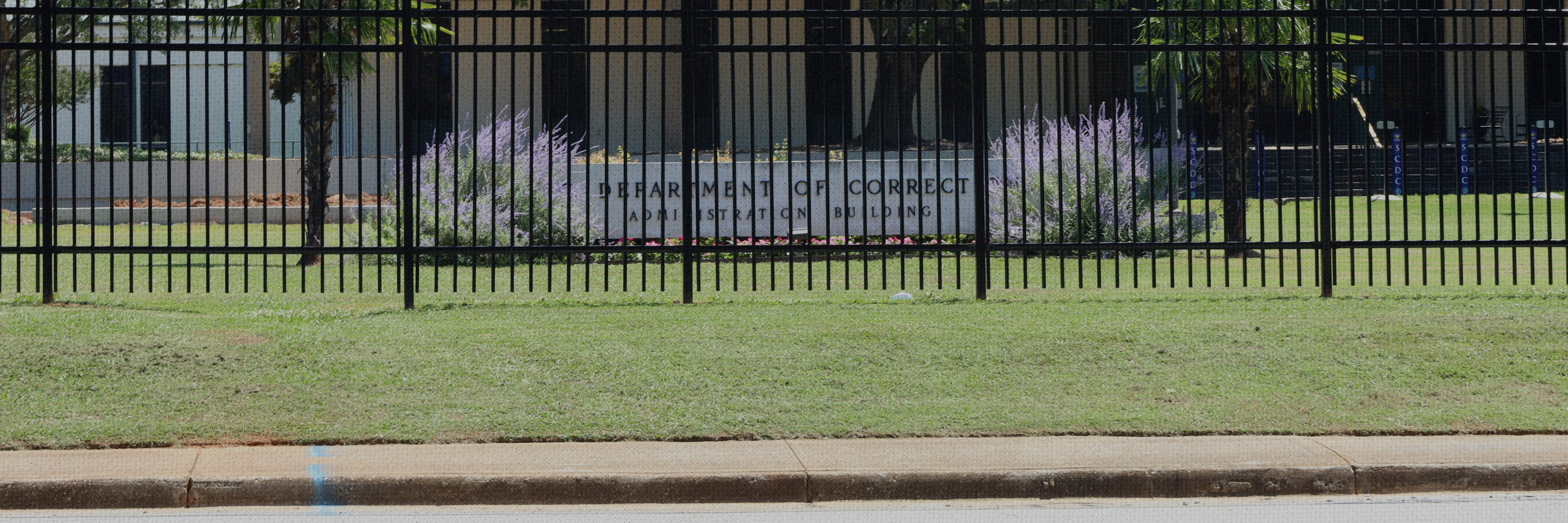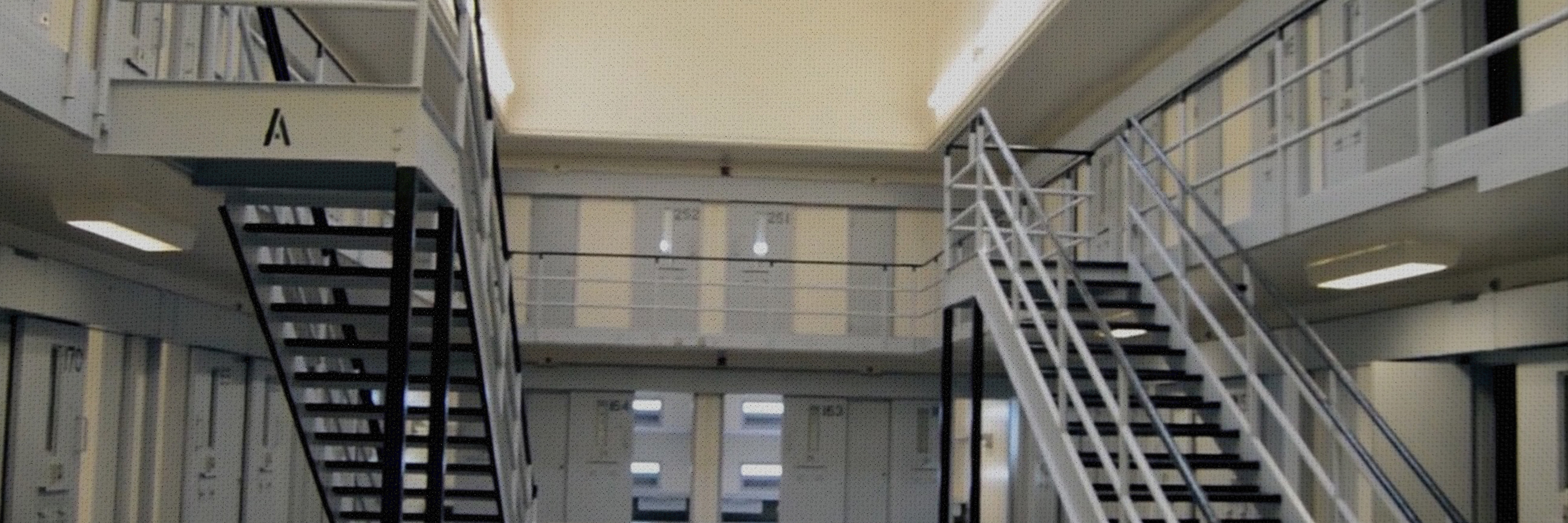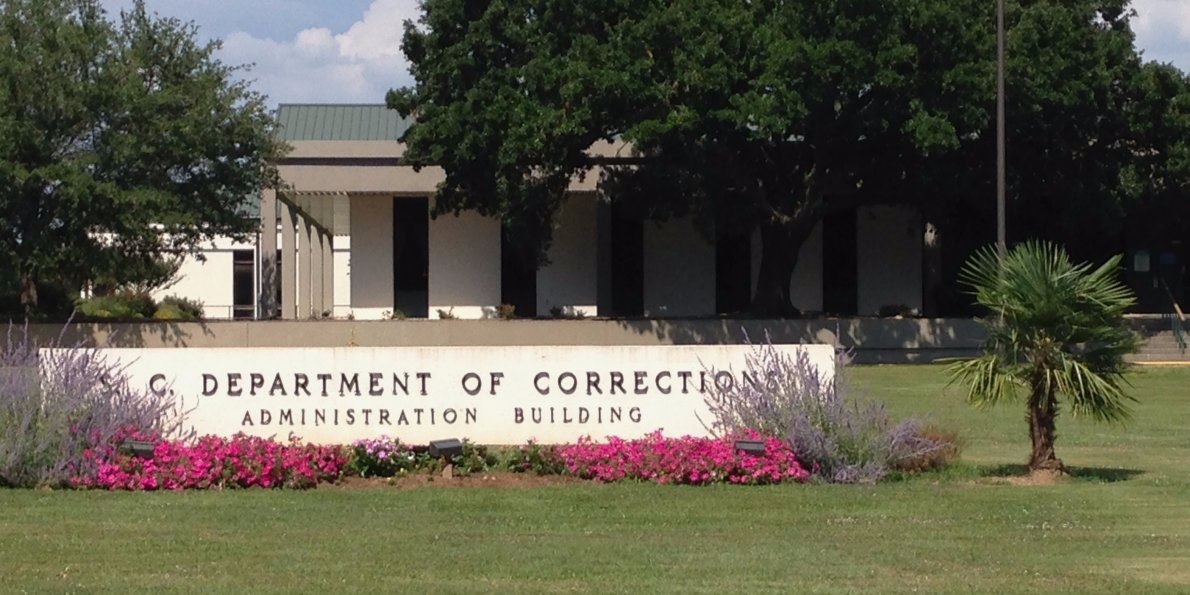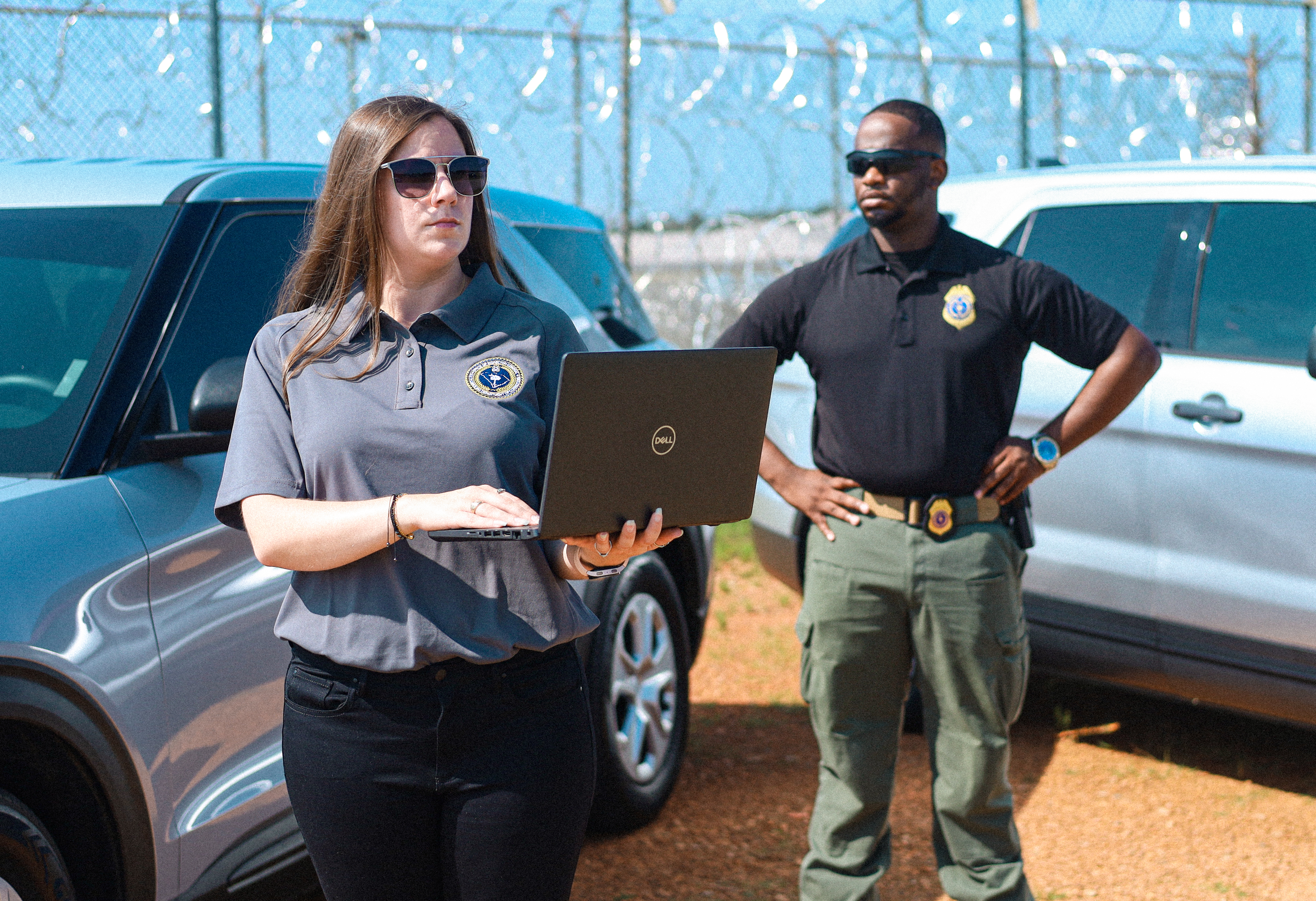
The S.C. Department of Corrections operates 21 prisons serving about 16,000 inmates. It is a cabinet agency led by Acting Director Joel Anderson and reporting to Gov. Henry McMaster. The agency employs about 4,500 people. SCDC has had the lowest recidivism rate in the nation since 2021.
Information
SCDC Biosecurity Information (PDF)
USDA Non-discrimination Statement (PDF)

Research Conducted Within the SCDC
The South Carolina Department of Corrections recognizes the importance of and supports cooperative corrections research. The Agency may allow individuals to conduct research within the SCDC provided it does not infringe upon an inmate’s or employee’s right to privacy, does not jeopardize Agency operations or security, does not incur undue, unjustifiable or excessive costs, and does not impose an unreasonable burden on staff resources. Subsequent to general project approval, SCDC reserves the right to limit staff involvement in research projects as required to meet SCDC mission-critical responsibilities. Research conducted within the Agency must conform to all applicable ACA/CAC standards, state and federal statutes and regulations, and SCDC policies and procedures. (4-ACRS-7D-12, 3-4105, 3-4108)
To ensure that research projects conducted within the SCDC are in compliance with Agency policies, procedures, applicable regulations and statutes, any person wishing to conduct research within the SCDC, including Agency employees, will be required to submit a research proposal to the Division Director of Technology (DOT), Research@doc.sc.gov. The SCDC may give first priority to research projects that provide information that may enhance the effectiveness of Agency programs and operations. Research that contributes to the body of knowledge in the social and behavioral sciences may also be encouraged. (3-4105)
To learn more about the procedures for conducting research within the Agency, please review SCDC Policy/Procedure ADM-15.07 (Research Conducted Within the SCDC). (PDF)
Chronology of Major Events (PDF)
The original correctional system in South Carolina was established in 1866 when the South Carolina Legislature passed an act that created the first state-level prison for felons that were housed in county facilities. In 1960, the Governor of South Carolina decided to end the abuses of the correctional system and therefore created a new state agency. The agency was named the South Carolina Department of Corrections. Today, the Department of Corrections is still a state agency, reporting directly to the Governor. The Department of Corrections currently has about 4,500 employees, just over 16,000 inmates and operates 21 institutions.

- Inmate and Bed Counts of SCDC Institutions (PDF)
- Yearly Comparison of Inmate Bed Counts (PDF)
- Average Daily Inmate Population - Fiscal Years 1970-2025 (PDF)
- Inmate Escapes from SCDC Facilities, FY 1990-2025 (PDF)
- Admissions to and Releases from SCDC Base Population FY 2025 (PDF)
- Social Media Disciplinary Report (PDF)
- Inmate Assaults on Employees, 2016-2024 (PDF)
- SCDC FAQs (PDF) | Archived SCDC FAQs
Statistics by Race and Gender - on June 30, 2025
- Profile of Institutional Population (PDF)
- Sentence Length Distribution (PDF)
- Remaining Time to Serve Until Sentence Expiration (PDF)
- Most Serious Offense (PDF)
- Committing County (PDF)
- Age Distribution (PDF)
Comparative Statistics - Fiscal Years 2021 Through 2025
Statistics by Race and Gender - Fiscal Year 2025 (July 1, 2024 - June 30, 2025)
- Admissions Type (PDF)
- Sentence Length Distribution (PDF)
- Most Serious Offense (PDF)
- Committing County (PDF)
- Age Distribution (PDF)
Comparative Statistics - Fiscal Years 2021 Through 2025
Statistics by Race and Gender - Fiscal Year 2025 (July 1, 2024 - June 30, 2025)
Comparative Statistics Fiscal Years 2021 Through 2025
Comparative Statistics

Freedom of Information Act (FOIA) requests
The South Carolina Department of Corrections (SCDC) is committed to upholding the intent and the letter of the South Carolina Freedom of Information Act (FOIA). Only those records or information defined as "public records" and not excluded under Section 30-4-40 of the South Carolina Freedom of Information Act will be released to the requestor. With the exception of requests pursuant to S.C. Code Ann. 30-4-30 (d), SCDC requires individuals requesting information under the FOIA to submit their request in writing to SCDC's FOIA Coordinator. Written requests must include the following:
• A simple description of the requested information
• The name, address, and phone number of the person making the request.
Written FOIA requests can be mailed to or emailed to:
FOIA Coordinator
Office of General Counsel
South Carolina Department of Corrections
Post Office Box 21787
Columbia, SC 29221-1787
FOIA@doc.sc.gov
Please note: SCDC may require a deposit and will charge a fee as permitted by S.C. Code § 30-4-30(B) for all record production. Payment may be required prior to production. SCDC will charge a per page fee for any records produced in hardcopy of $0.10 for black and white copies and $0.25 for color copies. In accordance with S.C. Code § 30-4-30(C), redactions may be made pursuant to applicable exemptions. SCDC will also charge $18.95 an hour for the search, retrieval, and redaction of records. This rate may be subject to change in some situations but will always be based on the salary of the lowest-paid employee with the skill and training necessary to complete the task as is required by S.C. Code § 30-4-30(B).

1. What are the statutory responsibilities of the South Carolina Department of Corrections (SCDC)?
SCDC is the state adult prison system in South Carolina, responsible for the housing, feeding, and security of adult offenders, aged 17 and above, who were sentenced by the courts to a period of incarceration exceeding three months. By statute or cooperative agreements, SCDC also houses these inmates: juveniles sentenced as adults; county safekeepers (death-row and pre-trial offenders posing high risks in local jails); Interstate Corrections Compact inmates, and pre-sentence evaluation offenders under the Youthful Offender Act, Section 5B. Probation, parole and other community supervision programs are under the jurisdiction of the Department of Probation, Parole and Pardon Services (DPPPS). Juveniles are under the jurisdiction of the Department of Juvenile Justice (DJJ). On April 12, 2021 SCDC's jurisdiction count totaled 15,316 inmates, housed in 21 facilities, operated by approximately 4,500 employees.
2. What is the incarceration rate in South Carolina?
According to the Southern Legislative Conference (Adult Corrections Systems 2017 report), South Carolina has an incarceration rate of 397.84 state inmates per 100,000 residents and is ranked 7th in the South.
3. What are SCDC's total and per inmate operational costs?
In Fiscal Year 2018 (July 1, 2017 - June 30, 2018), SCDC expended $427 million in state-appropriated funds, for a per inmate cost of $21,756 per year ($59.61 per day).
4. How much does it cost to build a prison?
SCDC's recent capital improvements plan estimates construction costs by facility type, in 2018 dollars:
- 1,500-bed medium security institution - $244 million ($162,700 per bed)
- 500-bed maximum security institution - $121 million ($241,000 per bed)
- 3,000-bed high-maximum security institution - $676 million ($226,000 per bed)
5. What is SCDC's inmate-to-staff ratio?
On June 30, 2018:
- Inmate-to-security employees ratio = 6.4:1 (security staff includes correctional officers and supervisory security positions)
- Inmate-to-correctional-officer ratio = 10.2:1
- Inmate-to-all-employees = 3.7:1
6. How do I get the mailing address and phone numbers of SCDC prisons?
Please click on Institutions and select individual institutions as listed.
Or click Organization/Contacts to obtain a listing of phone numbers.
7. What products or services are provided by SCDC Prison Industries (PI)?
SCDC prison industry products include apparel, case goods, dorm furniture, institutional bedding, janitorial supplies, metal furniture, modular panels, license plates, seating, and signs. Among prison industry services are framing, printing, reupholster, laundry, and tire re-treading. For further information, visit Prison Industries.
1. How does SCDC decide where an inmate is housed?
When an offender is admitted to SCDC, he/she is assessed at the Reception and Evaluation Center. The intake process collects data on the inmate's criminal and incarceration history, current offenses and sentences, medical status, and special program needs. This data is used to determine an inmate's likelihood to escape or commit acts of violence while in prison. According to each inmate's potential risk, an SCDC caseworker assigns her/him to a security level and a custody level.
This assessment and assignment process is commonly known as Inmate Classification System. Following their initial classification review at the Reception and Evaluation Center, inmates are subsequently reviewed every 12 months for security/custody changes, if appropriate. However, upon receiving new crime data or when an inmate commits an infraction, a case worker will initiate a re-classification review immediately, and adjust the inmate's security/custody status and institutional assignment accordingly.
SCDC has adopted a consistent Inmate Classification System in that all caseworkers apply the same set of criteria to all inmates. While the common set of classification criteria is computerized, a central state office within the Division of Classification and Inmate Records monitors all classification decisions.
2. How do inmates spend their time in prison?
Inmates work, enroll in education/vocational training, and/or participate in rehabilitation programs unless they are physically unable or constrained under these circumstances - intake/transfer processing, lock up, and court hearings. Institutional work assignments range from ground maintenance and food preparation to prison industry production and services. Education/training programs include adult basic education, GED preparation to various vocation training. Examples of some rehabilitation programs are as follows: alcohol and drug addictions treatment, and sex offender counseling.
3. How are money matters handled in prison?
SCDC prisons are cashless - inmates may not carry cash (possession of cash is a policy violation leading to disciplinary action). Visitors are prohibited from bringing cash to inmates. SCDC provides a central bank, Cooper Trust Fund, which maintains an automated account for each inmate, tracking deposits and transactions. An inmate and his/her families and friends can make deposits to his/her account. Inmates are issued identification cards that can be used as debit cards at SCDC institutional canteens for purchases of personal necessities and other items. For further information, click Cooper Trust Fund.
4. Can inmates have visitors?
Inmates can have a maximum of 15 approved visitors - he/she should send to each of his/her prospective visitors the form: "Request for Visiting Privileges" (provided at Reception and Evaluation Center upon his/her arrival and available at all institutions once transferred from R&E). The visitor must have his/her request processed by SCDC's Central Visitation Center which takes approximately four weeks. Upon approval, it is the inmate's responsibility to advise the visitor that they have been approved and notify them of the days/times he/she is eligible for visits. The visitor may also contact the inmate's housing location to check on visiting hours and days. For details on visitation rules and procedures, click Inmate Visitation.
5. Can inmates phone home or their friends?
Yes, inmates are allowed to make collect calls from inmate phones located in the institutions, but the calls are subject to restrictions and will be recorded and monitored. Inmate calls will be clearly identified and called parties have the option to accept or refuse a call, block all future calls from the inmate, or block all future calls from the SC Department of Corrections. Inmates admitted to SCDC will be issued a Personal Identification Number (PIN) within one week of their admission to enable them to place calls as allowed by the institutional schedule. Institutional telephone coordinators help inmates with these procedures. In order to accept collect calls, your phone account must be current with your local telephone company (not past due) and they must have a billing and collection agreement with the South Carolina Department of Corrections' inmate phone service provider. You must have a non-cordless phone with touch-tone service (no rotary dial). Inmates are not allowed to call toll-free numbers. A prepaid account can be established to allow calls to cell phones or phones where the local telephone company does not have a billing and collection agreement with the inmate phone service provider.
6. Can inmates send or receive mail and packages?
Yes, inmates may send any quantity of mail provided he/she bears the cost of postage. He/she may receive mail and packages, which should be marked with this information: inmate's legal name, SCDC number, living unit/room/wing, full name of institution and its address. SCDC may limit incoming mail when there is reasonable belief that it poses a security threat, or when it contains these unauthorized contents: unpaid publication, cash, stamps, unauthorized checks or money order, Polaroid pictures, pre-stamped or "no postage necessary" envelopes, musical/audible greeting cards, pre-paid phone cards, cash-on-delivery products, personal identification documents (such as driver's license, birth certificate), and financial statements. Link to our page for inmate mail and its FAQ for details. Contact the Office of General Counsel (803-896-8508) with questions.
7. Will inmates be rewarded for good behavior or work in prison?
Yes, South Carolina laws allow SCDC to award inmates with credits for good behavior and participation in work/educational programs. These credits can be applied towards an inmate's sentence(s) to establish an earlier release date unless the inmate was sentenced under the Truth-in-Sentencing statute and must serve 85% of his/her sentence. Good time credits can be applied towards establishing sentence expiration date. Good time credits cannot be applied towards establishing parole (conditional release) eligibility. On the other hand, work/educational credits can be applied towards conditional or unconditional release criteria.

LEGISLATIVE AUDIT COUNCIL — 2019
The Legislative Audit Council performed a limited review of the S.C. Department of Corrections covering the years 2013-2018. The report was published in August 2019.
LEGISLATIVE AUDIT COUNCIL — 2008
The Legislative Audit Council began its review of the S.C. Department of Corrections in the fall of 2007. In May of 2008, the Legislative Audit Council announced plans for an employee survey that it eventually dropped. Documents listed below include correspondence between SCDC and the Legislative Audit Council, multiple drafts of the survey and messages sent to SCDC employees about the survey:
- Letter From LAC Explaining Plans for Survey (PDF)
- A Draft of Survey Introduction Sent From LAC to SCDC (PDF)
- First Draft of Actual Survey (PDF)
- Response from SCDC to LAC (PDF)
- LAC Response Back to SCDC (PDF)
- Second Draft of LAC Survey (PDF)
- Second Letter from SCDC to LAC (PDF)
- LAC E-mail Alerting SCDC Employees to Survey (PDF)
- LAC Message on SCDC Internal Mainframe With Same Survey Message (PDF)
- Letter from SCDC Director Jon Ozmint to Agency Employees (PDF)
- Letter From University of South Carolina Professor to LAC (PDF)
- Letter From LAC to SCDC (PDF)
- Letter from SCDC to LAC(PDF)








